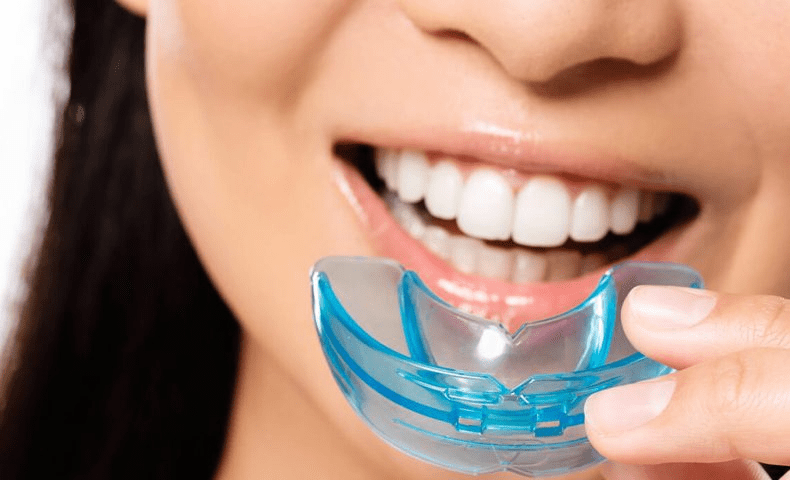Have you ever wondered how a mouth guard for sleeping can contribute to peaceful nights and healthier teeth? By providing a protective barrier, a mouth guard for sleeping can help reduce the impact of teeth grinding and clenching, potentially leading to improved dental health and more restful sleep.
Mouth Guard For Sleeping
The importance of mouth guards cannot be overstated when it comes to ensuring a restful night’s sleep and maintaining oral health. A mouth guard for sleeping acts as a protective barrier, preventing teeth grinding and clenching, which are common issues that can lead to significant dental problems over time.
By wearing a mouth guard, individuals can reduce the risk of enamel wear, tooth fractures, and other complications associated with bruxism. This simple yet effective tool helps in preserving the integrity of your teeth while promoting a more peaceful sleep experience.
Moreover, the benefits of using a mouth guard for sleeping extend beyond just dental health. It can also contribute to overall well-being by minimizing discomfort and potential jaw pain caused by nighttime teeth grinding. As a result, individuals may experience improved sleep quality and wake up feeling more refreshed.
For those interested in exploring additional options for enhancing their sleep experience, consider reading about the Mouth Guard For Snoring: Sleep Better, Snore Less.
Benefits of Dental Health
Using a mouth guard for sleeping can significantly contribute to maintaining optimal dental health. These guards act as a protective barrier, preventing the teeth from grinding against each other during sleep, a condition known as bruxism. By reducing the wear and tear on your teeth, a mouth guard helps preserve the enamel, which is crucial for maintaining strong and healthy teeth.
Additionally, it can alleviate jaw tension and reduce the risk of temporomandibular joint disorders, promoting overall oral well-being. A mouth guard for sleeping can help minimize the risk of tooth fractures and other dental injuries that might occur due to unconscious clenching, ensuring that your teeth remain intact and healthy over time.
Reducing Teeth Grinding Effects
Teeth grinding, also known as bruxism, can lead to a variety of dental issues, including worn enamel, increased tooth sensitivity, and even jaw pain. A mouth guard for sleeping can play a crucial role in reducing the effects of teeth grinding by providing a protective barrier between the upper and lower teeth.
This barrier helps to minimize the impact of grinding, promoting healthier teeth and more peaceful nights. By using a mouth guard for sleeping, individuals may experience a reduction in the adverse effects associated with bruxism, contributing to overall oral health and well-being.
Enhancing Sleep Quality
A mouth guard for sleeping can play a significant role in enhancing sleep quality by providing a comfortable barrier that helps reduce the impact of teeth grinding and clenching during the night. This protective device can contribute to more restful and uninterrupted sleep, allowing individuals to wake up feeling refreshed and rejuvenated.
By minimizing disturbances caused by bruxism, a mouth guard for sleeping supports overall well-being and promotes healthier teeth. For those interested in learning more about oral health and sleep solutions, Stone Dental Lodge, your trusted Bozeman Dentist, offers valuable insights.
Preventing Jaw Pain
Jaw pain can be a significant barrier to achieving restful sleep, often resulting from unconscious teeth grinding or clenching during the night. This discomfort not only disrupts sleep patterns but can also lead to more severe dental issues over time.
By addressing the root causes of jaw pain, individuals can experience a reduction in discomfort and an improvement in overall sleep quality. Prioritizing solutions that alleviate jaw pain can contribute to more peaceful nights and healthier teeth, fostering a better quality of life.
Protecting Enamel from Damage
Using a mouth guard for sleeping can play a crucial role in protecting enamel from damage caused by nighttime teeth grinding or clenching. This common issue, often occurring unconsciously during sleep, can lead to significant wear and tear on the enamel, the hard outer layer of the teeth.
By providing a barrier between the upper and lower teeth, a mouth guard for sleeping helps to minimize the impact and friction that can erode enamel over time. Preserving enamel is essential for maintaining overall dental health, as it serves as the first line of defense against cavities and tooth decay.
Addressing Snoring Issues
Snoring can disrupt not only your sleep but also the sleep of those around you, leading to restless nights and potential health concerns. A mouth guard for sleep may play a role in addressing snoring issues by helping to maintain an open airway during sleep.
By positioning the jaw in a way that reduces airway obstruction, a mouth guard for sleeping can contribute to quieter, more restful nights. This approach can be beneficial for individuals seeking to minimize the impact of snoring on their overall sleep quality and dental health.
Custom vs. Generic Options
When considering a mouth guard for sleeping, understanding the differences between custom and generic options is essential for achieving peaceful nights and healthier teeth. Custom mouth guards are typically tailored to fit the unique contours of an individual’s mouth, potentially offering a more personalized fit.
On the other hand, generic mouth guards are pre-made and designed to fit a wide range of users, often available in various sizes. Both options aim to provide protection against teeth grinding and clenching during sleep, contributing to overall dental health.
Understanding Bruxism Causes
Bruxism, commonly known as teeth grinding, is a condition that can significantly impact your oral health and overall well-being. Understanding the causes of bruxism is essential for those seeking a peaceful night’s sleep and healthier teeth.
Stress and anxiety are often linked to this condition, as they can lead to unconscious clenching of the jaw during sleep. Additionally, misaligned teeth or an abnormal bite may contribute to the development of bruxism. Recognizing these potential causes is crucial for individuals exploring solutions like a mouth guard for sleeping, which can help mitigate the effects of teeth grinding.
Conclusion
Embrace the tranquility of restful nights and healthier teeth with a mouth guard for sleeping. For more information, call 615-542-5123 or check out the reviews on Google Maps.

